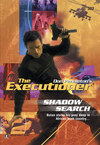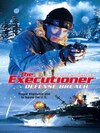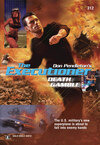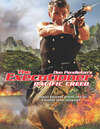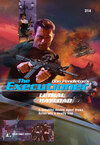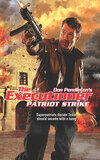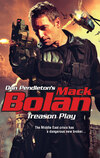Читать книгу: «Shadow Search», страница 2
“I received a call on my—” Karima hesitated, the significance only then becoming a reality “—on my cell phone.”
2
Back in his hotel room Bolan tossed his jacket on a chair. He crossed to the small refrigerator and took a look inside. There were some bottles of water. He took one and opened it, taking a drink as he settled on the bed to read the file Karima had given him.
The information was scant, direct, and it only took a few minutes to digest. Karima’s children had been picked up from his home on the outskirts of the city to be driven to meet Karima. The drive should have taken no more than twenty minutes, but when an hour had gone by, the president received the phone call telling him that the children had been taken. He had ten days in which to carry out the terrorists’ demands. If he failed to do so the children would be killed and their bodies returned to him. The terrorists also demanded that news of the kidnap be kept from the media. As proof the kidnappers were serious, Karima was given instructions to check his garage at home. When he did he found his car had been returned, minus the children and with the driver’s body in the trunk. The man had been brutally knifed to death, his throat cut in a final gesture.
That had been two days ago. Enough time for the terrorists to travel a good distance from the scene of the kidnapping. Bolan considered the facts, and the more he thought about it the more he became convinced there was an inside connection. He opened the slip of paper Karima had given. There were only three names written on it. Karima had identified one of them as the driver of the car carrying the children. The second was Simon Chakra, whom Karima listed as his military commander. The last name, and Bolan had anticipated this, was Raymond Nkoya.
Vice-president or military commander?
It wasn’t beyond the realm of possibility that either of them might be involved. Given the restless nature of African politics, Bolan was aware of the way matters could evolve. There were still undercurrents of tribal loyalties endemic to the African makeup. Civil wars, the struggles between filial groups and the eternal fight against an often harsh land, these were large issues facing the continent. Some countries had weathered the transitions and were growing into stable, forward-looking regimes. Others were still making their way through the troubled times, and in some instances solid regimes crumbled under attacks from within that weakened their power base, sometimes toppling the elected government and allowing an opposition party to gain control.
Joseph Karima looked to be slipping into that kind of maelstrom. It was far from his own making, but he would have little choice if the rebel threat wasn’t reversed. They could continue to chip away at his hold on the country, destabilizing everything he was trying to create. Attacks on the infrastructure, the terrorizing of the populace, the slow wearing down of confidence and security, these were the tools of the terrorist. Karima on his own might have weathered all of these things—but now there was an added element. His children. They were being used to coerce him into meeting the rebel demands.
Bolan set aside the file. He found his bag and reached inside for the tri-band cell phone Aaron Kurtzman had furnished him with. Bolan switched it on and waited until it had located the satellite receiver. He tapped the key that speed-dialed the Stony Man number that would connect him directly with Kurtzman’s cyber complex.
Kurtzman’s gruff tones came through loud and clear.
“Bear, I need you to check out two people for me,” Bolan said. “Simon Chakra. He’s the military commander here. Then vice-president Raymond Nkoya. Everything you can find out about them. Political leanings. Family backgrounds. As far back as you can go.”
“Okay. Anything else?”
Bolan quoted Karima’s cell phone number.
“The names I gave you are the only people who should have access to that number. Gives them a direct connection through to Karima. There was a third name. The driver of Karima’s car. He was delivered back to Karima’s house in the kidnapped car. But he was dead.”
“And Karima was told about the kidnapping over this phone?”
“You got it. We may be way off but it’s all we have at the moment.”
“I’ll get back to you.”
Bolan picked up the room phone and rang the number McReady had given him. “I may need transport,” Bolan told him when the man answered.
“City use, or something to take you farther?”
“Better make it the latter. I might need to go outside the city limits.”
“Nice way of putting it. Leave it to me. I’ll have something delivered to your hotel soon as I have it ready.”
“That’s fine.”
Bolan replaced the receiver. As he did he felt the room shake. The floor vibrated then the main window blew in, showering the room with glass. He felt something catch his left cheek, a sharp sensation. When he touched his hand to it his fingers came away bloody. All this happened in a micro-second, and following in the next heartbeat came the sound of the explosion. Hot air gusted in through the shattered window. The room shook for long seconds. Bolan could hear rumbling continuing outside.
As Bolan moved to the window, the rumble of the blast fading away, he picked up the rattle of debris banging against the outside wall. More windows had been shattered. People began to shout and scream. Some of shock, others spoke of pain, and Bolan knew there would be casualties. He pulled a leather jacket from his bag and zipped it over his holstered gun as he reached the window. Across the street he saw a dust cloud settling around the remains of a building. The street was littered with debris—and people. Even from his position Bolan could see the mark of bright blood against exposed skin and clothing. He turned from the window and made his way downstairs and out of the hotel.
The building, from his brief moments passing it on the approach to the hotel, had been a shop of some kind. A couple of stories high, with wide display windows showing merchandise. Those windows were gone now, as was most of the frontage. The upper floors were exposed. The street was covered with chunks of concrete, and glass lay everywhere. Cars that had been parked outside the store were half buried under fallen masonry. One was burning, throwing dark smoke into the sky. More smoke was rising from the wrecked store.
No one seemed to be in any state to help. There were a lot of walking wounded. People moving around in a daze, bloody and with clothing in tatters. The concussion had caused many of them to bleed from the ears and nose. They were wandering aimlessly.
Bolan saw his first casualty. A young man struggling to stand, unaware that his right leg was dragging behind him, reduced to bloody tatters. Splintered bone protruded through the lacerated tissue. Blood was pulsing from a severed artery. Bolan knelt beside him, his strong hands settling the man.
“Try to stay still. We’ll get help as soon as possible.”
Bolan searched for a pressure point, pressed firmly over the spot and managed to reduce a degree of blood loss.
The man stared up at Bolan, his eyes wide with shock. His face was streaked with blood from numerous cuts and gashes. “Why has this happened?”
“Right now we don’t know.”
The sound of a police vehicle reached Bolan’s ears. He looked around and saw a blue-and-white Ford 4×4 rolling to a stop. Armed police officers leapt out, staring around the site of the explosion.
“Over here,” Bolan shouted.
One of the officers crouched beside him. He seemed genuinely shocked by the condition of the injured young man.
“We need ambulances. Emergency services. Now,” Bolan snapped. “Call it in now.”
The officer reached for the transceiver clipped to his belt and began to call in rapid instructions. Two more police vehicles sped into view. Uniformed officers spilled out. One of them was a tall, powerfully built man, with sergeant’s stripes on his shirt sleeve. He began to yell orders to the other officers, directing them to specific tasks. The sergeant crossed to where Bolan was kneeling beside the injured man.
“You managing?” he asked, taking in Bolan’s bloody hands clamped about the victim’s leg.
“For the moment,” Bolan answered.
“What a mess,” the sergeant said. “Why can’t these bastards come out and fight like men? What do they expect to gain from this kind of thing?”
“Confusion. Intimidation. Anything to upset the status quo.”
“If I ever get my hands on them I’ll upset more than that.”
The sergeant glanced around and found himself face-to-face with the young officer who had called in for backup. He was about to yell at the man when he saw the shock etched on the man’s face.
“Go to the hotel, Kunda. Tell them we need blankets, sheets and towels,” he said in a gentle tone that belied his powerful physical appearance.
The officer looked at him, then turned and headed for the hotel.
“He needed that,” Bolan said.
“Ah, youngsters. We were all there once,” the sergeant replied.
Over an hour later, Bolan, dusty and bloody, sweat soaking his clothing, leaned against the side of the sergeant’s patrol vehicle. He had spent the intervening time helping to pull casualties out of the demolished store. Ambulances were still ferrying the injured to the city hospital. The dead were laid out on the road, covered with sheets. Bolan had counted sixteen. Five of them had been young children. The rescue teams were hard at it, digging through the rubble, searching for others who might still be trapped inside the building.
A group of people was clustered around a car listening to another repeat of the taped message that had been sent to the station within minutes of the bomb blast. The rebels claimed responsibility for the explosion and were threatening more if the government did not accede to their demands. They had been forced into this position because the government had refused to compromise. So the people of Tempala would pay the price. The voice on the tape made the usual excuses, used the same condescending tones as he claimed that what had happened was the fault of a repressive administration. The rebels had been forced to make this dramatic gesture. Not once during the tape did the man even hint at any kind of regret over the deaths of innocent people.
The scenario wasn’t unfamiliar to Bolan. He had seen and heard the same in other locations around the world. The work of savages who considered this kind of thing a legitimate part of their agenda. The senseless death and destruction was intended to cow the populace into favoring the demands of the opposition. In Bolan’s estimation these people had just crossed the line. They were using the most base form of coercion, and as far as the soldier was concerned, Tempala’s rebels—as he had said to President Karima—had stepped into the shadow land that marked them down as nothing more than terrorists.
“They talk as if it’s our fault,” someone close by said.
Bolan looked up and saw the big sergeant bearing down on him, clutching mugs of steaming coffee in his hands. He handed one to Bolan. The sergeant’s uniform was stained and bloody, his black skin streaked with dust and gleaming with sweat.
“That’s what they want you to believe,” Bolan said. “Make the people feel guilty so they come around to the way of the terrorist.”
“Don’t you mean our glorious rebels?” the policeman said with more than a hint of irony in his voice.
Bolan looked him in the eye. “No, I mean terrorist.”
The sergeant sized up the tall American as if he hadn’t quite made up his mind about the man yet. “You know about this kind of thing?”
“A little.”
The sergeant shook his head. “I think a lot, my friend.”
He stuck out a large hand. Bolan took it and they shook.
“Now tell me who you are. And why you are wearing a gun under that jacket you haven’t taken off even in this heat.”
There was no threat in the man’s tone.
“Name’s Mike Belasko. I arrived a few hours ago. I’m part of Leland Cartwright’s team. The man who…”
The sergeant nodded. “I know who he his. So, Mr. Belasko, what is your job on the team?”
“Security advisor.”
“That would explain the gun.”
Bolan smiled. “No fooling you.”
“My job.”
“You have a name, Sergeant?”
“Christopher Jomo.”
“You been a policeman long?”
Jomo gestured at the destruction. “When I see things like this I think too long. Then I remember why I became a police officer and I get angry. Angry at the bastards who do such things. Tempala is not a bad country. Because of President Karima things are getting better all the time. They are not perfect yet, but we’ll get there. If we weren’t being plagued by these damned…terrorists…we would get there a lot faster.”
“Nothing worth having comes without a fight, Jomo.”
“I can accept that,” the policeman said. “But not when they wage war on children.”
Jomo was looking at the five small forms covered by sheets. In death they seemed to shrink even smaller. The big man’s shoulders sank and he bent his head for a moment.
“Not the children,” he said, almost in a whisper. “Now these men receive no mercy.”
No mercy. The policeman’s words might have come from Bolan himself.
“You know one of the crazy things here,” Jomo said. “Many of the injured are Kirandi. The idiots have killed their own people as well.”
“Belasko?”
Bolan glanced round and saw McReady pushing through the crowd. The man looked genuinely concerned when he saw the state of Bolan’s clothing.
“Jesus, are you okay?”
“Yes. I’ve been giving a hand.”
McReady recognized Jomo. “I see you two have met.”
Jomo smiled. “Mr. Belasko has been a good friend today. It will not be forgotten. I must go and see how my men are doing. We’ll meet again, Belasko.”
Bolan nodded briefly. He watched the big policeman walk away. Jomo hesitated as he passed the bodies of the five children, and Bolan realized just how badly the man had been affected.
“Hey, you sure you’re okay?”
“Phil, don’t worry. I just need to get cleaned up.”
McReady sensed the hardness in Bolan’s words. “Belasko? What is it?”
Bolan took a long, hard look at the death and destruction surrounding them. He listened to the faint cries of the injured.
“This has just become a war,” Bolan said and walked away.
BACK IN HIS HOTEL ROOM Bolan used the number Karima had given him and spoke briefly with the president.
“Have you heard personally from the terrorists, sir?”
“I received a call minutes after the explosion. It was a taped message.”
“Justifying what they had done?”
“It stated that the bombing was a show of commitment by the rebels,” Karima said. “That they meant business. They threatened there could be more of the same.”
Bolan considered the implications of the statement. Something didn’t sit right. “Why now?”
“I don’t understand, Mr. Belasko.”
“The ten days they gave you are not up yet. So why suddenly embark on a bombing campaign before they know whether you are going to accede to their demands?”
“As they said, it was to show they are serious.”
Bolan shook his head. “I don’t buy that. They took your children and murdered your driver. How much more serious does it get than that?”
“Mr. Belasko, what are you suggesting?”
“I’d rather not say anything until I’m sure. I’ll contact you again once I have some news.”
“Very well. I have to leave now. I’m going to the scene of the explosion, to see for myself what these people have done.”
Bolan put down the phone. He was thankful Karima hadn’t pressed him on his thoughts as to why the terrorists had set off their bomb. At the back of his mind lurked the possibility that the president’s children were no longer a bargaining ploy. Maybe they were already dead and lost as a lever by the terrorists? It was a tenuous strand but one the Executioner had to consider. He knew he was looking at the worst-case scenario—but in his line of work looking on the dark side was a common practice. In this case he hoped it was no more than speculation.
3
Bolan had opened his travelling bag and spread the contents across the bed. His combat gear, blacksuit and boots. His combat harness already loaded and ready for action, the pockets holding additional magazines for the .44 Magnum Desert Eagle as well as the Beretta. A sheathed knife was fastened to the belt of the harness. In one of the pockets was a wire garrote. Another held a number of plastic wrist restraints. He checked the gear, then moved to the Uzi SMG, spending a few minutes stripping it down, checking that everything functioned. The soldier reassembled the weapon, then picked up a double magazine; one magazine taped to another for quick reloading. He snapped the magazine into its slot, cocked the weapon and set the safety. He had two more of the double magazines. These went into the small backpack he had brought, along with a small med-kit and some field rations. There was a canteen he would fill with water from his room fridge before he moved out. Satisfied he had everything he needed, Bolan packed the gear away in the bag and stowed it in the wardrobe, locking it and pocketing the key.
It was now early evening. Since returning to his room Bolan had showered and dressed in fresh clothing. The gash on his cheek had stopped bleeding. It stung occasionally, reminding him of the day’s violent event. He decided it was time to eat, so he called room service and asked if they could send him up something light and a pot of coffee. He was promised something very shortly.
Picking up his cell phone Bolan speed-dialed the Farm and waited until he heard the distant connection lock in. The voice that came on was instantly recognizable as Barbara Price’s.
“How’s it going, Striker?” the mission controller asked.
He told her about the bomb incident.
“Sounds like you walked right into trouble.”
“I’ve had pleasanter days. Has the Bear come up with anything on those names and the cell phone number I gave him?”
“Hold on.”
He heard paper rustling.
“Aaron didn’t find anything very interesting on either man. They both look clean. Nkoya is down as a loyal member of the government. Backs President Karima all the way down the line. He does a lot of traveling on behalf of the Tempala administration. He was on some kind of government trip about three weeks ago to London and Paris.”
“Sounds like a man who moves around a lot.”
“I suppose.” Price hesitated. “You want to share that with me?”
“Share what?”
“Striker, I know the way your mind works. You can make the most casual remark sound like an accusation.”
“Maybe I have a suspicious nature. Go with me on this. Have the Bear dig a little deeper. Look at Nkoya’s finances. See if he has anything tucked away. Money. Stock. You know the routine. Same with Simon Chakra, the military guy.”
“There’s nothing on the cell phone number yet.”
“Tell the Bear to stay with it.”
“Okay. We’ll talk later.”
“Yeah.”
“Hey, Striker, you take care.”
Bolan broke the connection and put the cell phone down. He stood for a while, staring at the phone. Was he being too suspicious? Looking for things that didn’t actually exist? If he was wrong no harm had been done. On the other hand…
He heard the tap on his door. Room service. Bolan crossed the room and opened the door. The muzzle of an automatic pistol was thrust in his face.
“Step away from the door,” the man holding the gun said.
Bolan eased back, the man following. Without warning Bolan’s hands swept up, fingers clamping around the gunman’s wrist. The Executioner pulled the man toward him, half turning and throwing the gunman over his hip. The African gave a startled yell as he was hurled across the room. He hit the floor hard, the gun bouncing from his hand. He squirmed over on his back, bleeding from a split lip. He saw Bolan closing in and tried to stand. He barely managed to get his feet under him before Bolan reached him, driving a hard foot into the man’s chest that knocked him back down.
The Executioner wondered if the man was on his own and turned to check the open doorway. He caught a glimpse of a dark shape lunging at him, saw the glint of metal an instant before something hard clubbed him across the side of the head. The blow stunned him. Bolan stumbled, fell to his knees, nausea rising. A second blow drove him to the floor, and he felt the room shrink around him, turning black and swallowing him.
BOLAN CAME AROUND SLOWLY, staying still so as not to alert his captors he was awake. He was on the seat of a car by the sounds and movement. He could hear the sound of the motor, feel the bump and sway as the vehicle sped along an uneven road.
There were at least two of them that he knew of. Maybe there were more. It was hard to tell from his current position. He was aware of the pulse of pain in his skull. He could also feel the sticky streaks of blood that had run down the left side of his face from the gash in his temple.
Bolan assessed his situation. He had walked right into the attack. Opening the door without verifying who was there. He made no excuses. The opportunity to check had been in his own hands. His momentary lapse had let his captors subdue him. The next question asked where they were taking him and why? The options were few. They would either question him or kill him. Bolan couldn’t see any other variants. Either way his evening looked grim.
He decided that playing dead wasn’t going to gain him a great deal. He moved and uttered a low groan, pushing upright on the seat, then flopping against the backrest. Within those few seconds he checked out the passengers. One man behind the wheel, a second sitting across from Bolan on the rear seat, holding a gun on him.
“Wake-up time, brother. Wouldn’t want you to waste your last ride missing all the local sights.”
“I can live with that.”
“That’s where you’re wrong,” the driver said. “You’re not going to live at all.”
Bolan ignored the threat. He was checking their location. They were speeding along a dusty strip of rutted road between boarded-up buildings. It looked like an abandoned industrial area. Weeds were already choking the empty lots and creeping up the walls of derelict structures. The bush regaining its own. Beyond the rooftops the sky was starting to show red as the sun sank lower. Shadows were spreading.
The car swayed as the driver took a sharp turn, sweeping across a littered area and heading for the gaping doors of a large, empty building. The car rolled inside the cavernous building, coming to a jerky stop.
The gunman nudged Bolan with his boot. “End of the line, brother. Get your white ass out of the car. I don’t want to shoot you in here. Makes too much mess.”
The driver switched off the motor and pushed open his door.
Backing out of the car the gunman held his autopistol on Bolan, gesturing with his free hand. “You make it faster or I’ll change my mind.”
Bolan slid across the seat, his reflexes setting themselves for a fast reaction. He needed to move now, not in five minutes, because by then he would be incapable of doing anything.
“Speed it up, Benjo,” the driver said.
The gunman—Benjo—glared at the driver for using his name.
The Executioner burst into action the moment the man’s eyes flickered away from him. He launched himself off the rear seat of the car, powering himself upright. He grabbed Benjo’s gun arm, curling powerful fingers around the man’s wrist. Bolan ducked under the gunman’s arm, coming up behind the man and snaking his left arm around the man’s neck, jerking back hard. Benjo gasped, trying to suck in air through his restricted windpipe. Bolan slid his hand down to the gun in the hardman’s right hand, slipping his finger inside the guard, over Benjo’s own trigger finger. He jerked Benjo’s arm around, lining the muzzle on the driver as the man rushed around the front of the car, reaching for the handgun he kept tucked in the waistband of his trousers.
Bolan pulled the trigger. The autopistol fired, the bullet hitting the driver high in the chest. He stumbled, yelling in pain, his body bouncing off the front of the car. He was still fumbling for his weapon, feeling the pain from the wound, when Bolan fired a second time. This time he took the bullet in the side of his head. The impact knocked him to the ground and he lay in a jerking heap, blood spreading from under his shattered skull.
Benjo, shocked by the sudden, unexpected reversal of roles, struggled in Bolan’s grip. He was weakening fast, desperately attempting to suck in air. He offered little resistance when Bolan spun him and slammed him against the side of the car, snatching the pistol from his hand. Benjo felt the muzzle grind into his forehead.
“This can be easy or hard, depending on how you deal with the next couple of minutes,” Bolan said.
“I don’t know what you want.”
“We can start with why?”
“You were interfering in something that was none of your damn business. We took a contract to kill you.”
“That answers my second question then. All I need is the name of the one who gave the order.”
Despite his position Benjo managed a nervous laugh. “You expect me to tell? You might as well shoot me. I give you names I’m a dead man.”
“Don’t fool yourself I won’t do it,” Bolan said. “Your people went over the line when you set off that bomb yesterday. You killed innocent children in the name of your struggle and expect mercy?”
“Hey, man, I’m no rebel. I just took a job from them. The ones who died in that blast were just unlucky they were in the way.”
“Pity they weren’t asked if they wanted it that way.”
Benjo pushed against the muzzle pressed to his head. His face showed the anger inside. “So go home, Yank. This is not your fight. Go home before you die, too.”
Bolan’s smile was all the more chilling because it failed to reach his eyes. They were hard and cold, without a shred of pity.
“Tell me what I have to be frightened of? A bunch of backstreet thugs who bomb women and children? Real hardmen who can only kidnap the president’s young kids because they don’t have the guts to challenge him in the open?”
Bolan spun Benjo aside and pushed him away. He leveled the pistol.
“Game’s over, Benjo. You had your chance and wasted it. Time’s up.”
Benjo looked back over his shoulder. Maybe gauging how far he had to go to reach the freedom of the dark night. He even made a tentative movement with his foot. His manner changed abruptly. Benjo dropped to a crouch, yanking up the leg of his trousers, and snatched a slim-bladed knife from an ankle sheath. His arm went back in the first stage of a throw.
Bolan reacted quickly, twisting to one side, bringing the pistol back on line.
From somewhere behind Benjo a handgun fired, briefly illuminating the shadows with its muzzle-flash. The bullet hit Benjo between the shoulders, exiting through his upper chest. The velocity of the powerful slug created a substantial wound, shards of bone mingled with the lacerated flesh. Benjo fell facedown on the concrete floor, his limbs in spasm for a time.
Bolan watched the spot where the shot had come from. He wasn’t exactly surprised when he saw the tall figure of Sergeant Christopher Jomo appear. The man was in civilian clothing this time. He came to stand over Benjo, tucking his .44 Magnum revolver into his belt.
“You have a strange way of relaxing, Mr. Belasko.”
“I wasn’t given any choice in the matter.”
“I saw them bringing you out of the hotel.”
“Which you just happened to be passing?”
Jomo smiled. “I was on my way to see you.”
“About?”
“I was curious. Something made me want to know more about you.”
“Such as?”
“The real reason you are here in Tempala. I was just parking my car when I saw those two coming from the rear of the hotel dragging you along with them.”
“Lucky for me you have a curious streak.”
Jomo glanced at the bodies, then back at Bolan. “I think you’ve satisfied my curiosity here tonight. Especially why you are in Tempala.” Jomo stepped forward. “It wasn’t hard to overhear what you were saying. Now I’ll tell you something. If the president’s children have been taken, let me help. You’re going to need someone who knows the country. I was born on a farm and spent my childhood in the bush country.”
Bolan held back only for a moment. “What about these terrorists? Any thoughts on where they might take the children?”
“Out of the city, that’s for certain. Too many chances of being spotted if they stayed here. The children are known by the people. They would be recognized.”
“Sounds logical. Do they have a base? A central place they operate from?”
Jomo smiled. “My friend, this is Africa, not New York. The whole country is their base. Which is why they are hard to locate. These people live in the bush, move around as they have done for centuries. They can live off the land so they have no need for bases to store their food. They get water from the springs they know or from the water holes the animals use.”
“I get the message. So where do we start?”
“In the bush,” Jomo said.
“What about these two? Any thoughts?”
“I know the one you shot. Petty criminal. Native Kirandi. Been in prison a couple of times. Has a history of violence. He would have ended up shot sooner or later.”
“Any political leanings?”
Jomo shook his head. “He wasn’t the committed type. If you are asking if he was with the rebels I’d say no. Most likely he was hired to kill you because he was on the spot.”
“Pretty much what I heard.”
Начислим
+10
Покупайте книги и получайте бонусы в Литрес, Читай-городе и Буквоеде.
Участвовать в бонусной программе
